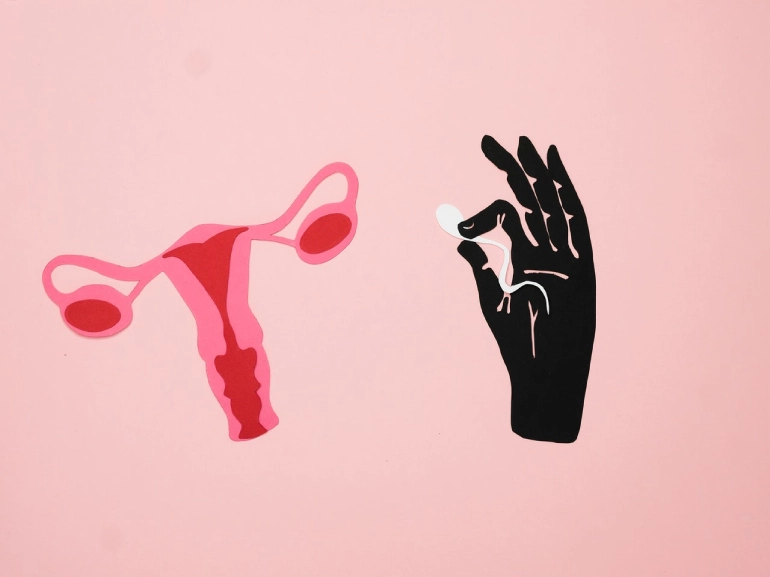Minor oral surgery is a common dental procedure that involves surgical intervention in the oral cavity to address various issues such as impacted wisdom teeth, dental implant dentistry, and gum disease. This comprehensive guide will walk you through the entire process of non-invasive oral surgery, from understanding the procedure to follow-up care and pain management strategies.
Understanding the Procedure

When you visit a cosmetic dentist for non-invasive oral surgery, they will explain the procedure for your dental services in detail and answer any questions you may have. The dentist will typically use local anesthesia to numb the area before performing the surgery. During the procedure, you may feel some pressure or pulling, but you should not experience any pain.
Minor oral surgery may involve extracting teeth, removing cysts or tumors, or performing gum surgery. The dentist will provide post-operative instructions to ensure proper healing and minimize complications. It is essential to follow these instructions carefully to promote a smooth recovery.
After the surgery, you may experience some swelling, pain, or bleeding, which are normal side effects. Your dentist will prescribe pain medication to help manage any discomfort during the recovery period. It is crucial to attend all follow-up appointments to monitor your healing progress and address any concerns.
Pre-Surgery Consultation
Before the non-invasive oral surgery, you will have a consultation with your dentist to discuss your treatment plan. If you need dental bridges or implant dentistry options, the dentist will explain the process and what to expect during and after the surgery. They will also provide you with an overview of the risks and benefits of the procedure.
The pre-surgery consultation is an opportunity to address any concerns or questions you may have about the surgery. Your dentist will assess your oral health and determine if you are a suitable candidate for the procedure. They may also take X-rays or impressions of your teeth to plan the surgery effectively.
During the consultation, be sure to inform your dentist about any medications you are taking and any underlying health conditions you have. This information will help the dentist provide safe and effective care during the surgery. It is essential to be honest and transparent about your medical history to ensure the best possible outcome.
Medical History Review
Health care professionals will review your medical history before minor oral surgery to ensure your safety during the procedure. It is crucial to disclose any allergies, medications, or medical conditions to avoid complications during the surgery. Your dentist will assess your overall health and make any necessary adjustments to the treatment plan.
If you have any pre-existing conditions such as diabetes or heart disease, your dentist may consult with your primary care physician to coordinate your care effectively. This collaboration between health care providers is essential to ensure a smooth and successful surgery. By providing a comprehensive medical history, you can help your dentist tailor the treatment to meet your unique needs.
Your dentist will also discuss the anesthesia options available for the surgery and any possible risks associated with them. It is important to follow your dentist’s recommendations regarding anesthesia to ensure your safety and comfort during the procedure. By working together with your dentist to review your medical history, you can minimize potential complications and achieve optimal results.
Follow Pre-Operative Instructions

Prior to minor oral surgery, your dentist will provide you with pre-operative instructions to prepare for the procedure. These instructions may include fasting for a certain period before the surgery, avoiding certain medications that can increase bleeding risk, and arranging for transportation to and from the dentist’s office.
It is essential to follow these instructions carefully to reduce the risk of complications during the surgery. By preparing your body and mind for the procedure, you can help ensure a smooth and successful outcome. If you have any questions or concerns about the pre-operative instructions, be sure to communicate with your dentist to address them effectively.
Following the pre-operative instructions will also help minimize anxiety and stress leading up to the surgery. By being well-prepared and informed, you can approach the procedure with a sense of confidence and peace of mind. Trust in your dentist’s expertise and guidance to guide you through the process safely and comfortably.
Arrange Transportation
After minor oral surgery, you may feel groggy or disoriented due to the effects of anesthesia. It is essential to arrange for transportation to and from the dentist office to ensure your safety and comfort. Ask a family member or friend to drive you to the appointment and accompany you home afterwards.
Having someone accompany you to the appointment can provide emotional support and assistance with any post-operative needs. They can help you follow your dentist’s post-operative instructions and ensure you have everything you need for a smooth recovery. By planning ahead and arranging transportation, you can focus on your recovery without worrying about logistical details.
If you are unable to arrange for transportation, speak with your dentist about alternative options such as a taxi or rideshare service. Your dentist’s office may also be able to provide recommendations for transportation services to help you get to and from the appointment safely. Prioritize your well-being by ensuring you have a reliable means of transportation for your non-invasive oral surgery.
Prepare Your Home for Recovery
After minor oral surgery, you will need to rest and recover at home for a period of time. It is essential to prepare your home environment to promote healing and comfort during the recovery process. Stock up on soft foods, such as yogurt, mashed potatoes, and soup, that are easy to eat and gentle on your mouth.
Set up a comfortable recovery area with plenty of pillows and blankets to help you relax and rest properly. Avoid strenuous activities and heavy lifting to prevent complications and aid in your recovery. Create a calm and soothing atmosphere in your home to support your healing and well-being.
Ensure you have access to necessary supplies such as pain medication, ice packs, and gauze pads to manage any post-operative discomfort. Stay hydrated and follow your dentist’s recommendations for oral hygiene and wound care to prevent infections. By preparing your home for recovery, you can focus on healing and recovering fully after non-invasive oral surgery.
Nutrition Considerations

During the recovery period after minor oral surgery, it is important to focus on nutrition to support healing and promote overall well-being. Incorporate soft, nutrient-rich foods into your diet, such as smoothies, scrambled eggs, and steamed vegetables, to provide essential nutrients for recovery. Avoid hard, crunchy, or spicy foods that can irritate the surgical site and delay healing.
Stay hydrated by drinking plenty of water and avoiding caffeinated or sugary beverages that can dehydrate your body. Hydration is crucial for healing and helps prevent dry mouth, which can be a common side effect of non-invasive oral surgery. Listen to your body and eat small, frequent meals to maintain your energy levels and support your recovery.
If you enjoy Asian cuisine, consider incorporating soft dishes like congee or miso soup, which can be nutritious and easy to consume. If you have dietary restrictions or preferences, work with your dentist or a nutritionist to develop a meal plan that meets your needs and promotes healing. By focusing on nutrition considerations, you can fuel your body with the essential nutrients it needs to recover fully and quickly after non-invasive oral surgery.
Managing Anxiety and Stress
It is common to experience anxiety and stress before minor oral surgery, but there are strategies to help manage these emotions effectively. Practice relaxation techniques such as deep breathing, meditation, or visualization to calm your mind and body before the procedure. Listening to soothing music or engaging in gentle exercise can also help reduce anxiety and promote relaxation.
Communicate openly with your dentist about any fears or concerns you may have about the surgery. Your dentist can provide reassurance and guidance to help alleviate your anxiety and ensure your comfort during the procedure. Remember that you are in capable hands and that your dentist is committed to providing safe and effective care for you.
If you are feeling overwhelmed by anxiety or stress, consider speaking with a mental health professional or counselor for additional support. They can help you develop coping strategies and provide emotional support as you prepare for non-invasive oral surgery. By managing anxiety and stress effectively, you can approach the procedure with a sense of calm and confidence.
Follow-Up Care
After minor oral surgery, it is essential to follow all post-operative care instructions provided by your dentist to promote proper healing. Attend all follow-up appointments as scheduled to monitor your recovery progress and address any concerns. Your dentist will assess the surgical site, remove any stitches if needed, and ensure that you are healing as expected.
During follow-up care, your dentist may recommend additional treatments such as teeth whitening or fluoride therapy to enhance your smile and oral health. These treatments can improve the appearance of your teeth and protect against cavities and decay. Follow your dentist’s recommendations for optimal oral health and a beautiful smile.
If you experience any unexpected symptoms or complications after the surgery, contact your dentist immediately for guidance. Signs of complications may include excessive bleeding, severe pain, swelling, or signs of infection. Your dentist will evaluate your condition and provide the necessary care to address any issues promptly. Additionally, maintaining good oral hygiene during recovery is crucial. By following up on care diligently, you can ensure a successful outcome after non-invasive oral surgery.
Signs of Complications
Although non-invasive oral surgery is generally safe and effective, there are risks of complications that you should be aware of. Contact an emergency dental clinic if you experience severe pain, excessive bleeding, swelling, or signs of infection after the surgery. These symptoms may indicate complications that require urgent attention from a dental professional.
Your dentist will provide you with information on how to recognize and respond to signs of complications after minor oral surgery. It is essential to act promptly and seek medical help if you suspect that something is wrong. By addressing complications early, you can prevent further issues and ensure a successful recovery.
If you have any concerns or questions about potential complications, do not hesitate to contact your dentist for guidance. They can provide advice on managing symptoms and determine if additional care is needed to address any complications effectively. Additionally, keeping a close watch on your recovery and maintaining open communication with your dentist can help you feel more at ease during this time. Remember that your dentist is there to support you throughout the recovery process and help you achieve the best possible outcome after non-invasive oral surgery.
Pain Management Strategies

After minor oral surgery, you may experience some discomfort or pain, which can be managed with various strategies. Your dentist may prescribe pain medication to help alleviate post-operative pain and discomfort. Take the medication as directed and avoid over-the-counter pain relievers that can interfere with your recovery.
Apply ice packs to the surgical site to reduce swelling and numb the area, providing relief from pain. Rest and avoid strenuous activities to promote healing and minimize discomfort. Maintain good oral hygiene with fluoride therapy by gently brushing your teeth and using a saltwater rinse to keep the surgical site clean and free from infection.
If pain persists or worsens despite these strategies, contact your dentist for further guidance. They can assess your condition and provide additional pain management options to help you feel more comfortable. By following pain management strategies diligently, you can minimize discomfort and support your recovery after non-invasive oral surgery.
Non-invasive oral surgery is a common dental procedure that can address various oral health issues effectively. By understanding the procedure, following pre-operative instructions, and arranging for transportation and follow-up care, you can ensure a successful outcome. Nutrition considerations, anxiety management, and pain management strategies play a crucial role in supporting your recovery and promoting healing after the surgery. Remember to monitor for signs of complications and seek prompt medical attention if needed. With proper care and attention, you can recover fully and enjoy a healthy and beautiful smile after minor oral surgery.



